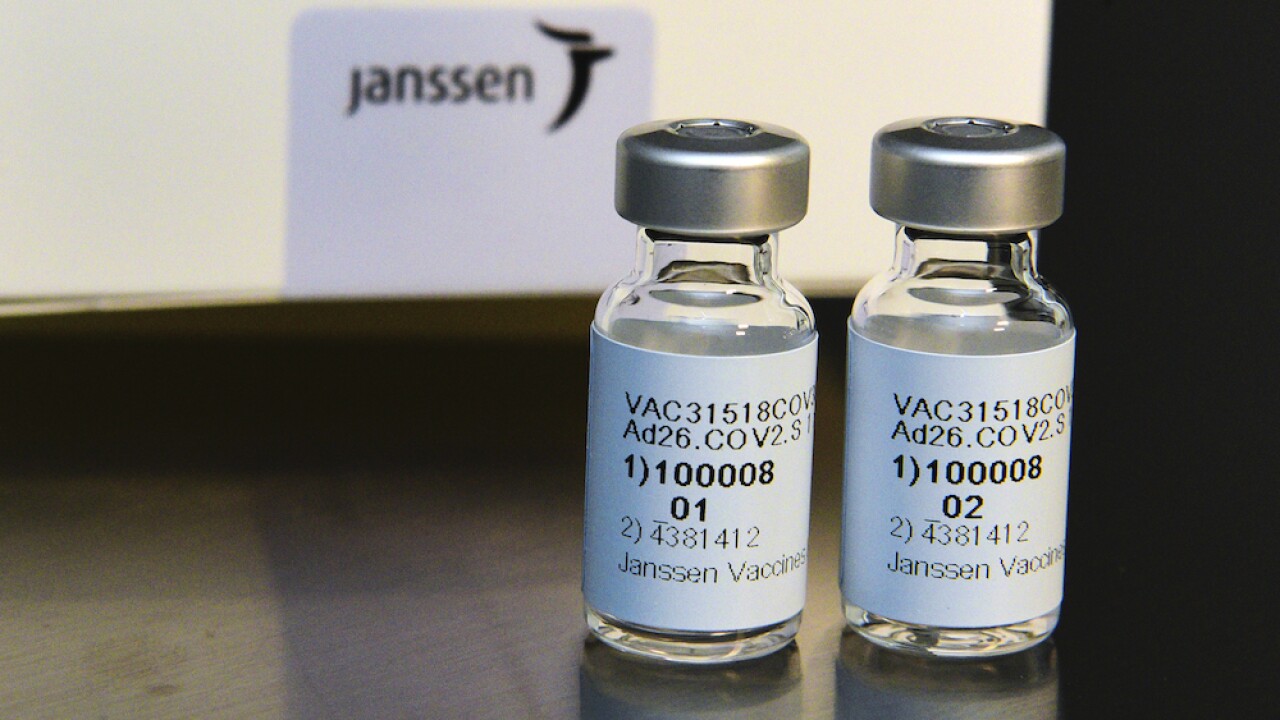SAN DIEGO (KGTV) -- After the announcement that Pfizer is working on a new booster specifically tailored to the delta variant, a lot of people are wondering: what about Johnson and Johnson?
Scientists acknowledge we know less about that vaccine than the ones from Pfizer-BioNTech and Moderna.
That’s because the J&J vaccine was the last authorized and fewer people have gotten it, said Dr. Shane Crotty, a professor at the La Jolla Institute for Immunology.
In the U.S., more than 84 million people have been fully vaccinated with the Pfizer vaccine and more than 61 million have gotten Moderna. Only 12.5 million people have received J&J, according to data from the Centers for Disease Control and Prevention.
The single-dose J&J vaccine also uses different technology to train the immune system, transporting its instructions in a harmless virus called a viral vector rather than using messenger RNA in the shots from Pfizer and Moderna.
RELATED: Pfizer to seek OK for 3rd vaccine dose; shots still protect
There are plenty of real-world studies on how well two-doses of the Pfizer vaccine protect against delta. Studies in the UK, Scotland, Canada and Israel show the efficacy against that variant is between 64 and 88 percent.
“But we are lacking that direct evidence for J&J,” Crotty said.
In the absence of a direct efficacy study, there is still a way to project or estimate how well J&J stacks up against the delta variant, Crotty said.
You have to go back to the company’s clinical trials in South Africa. Back then, South Africa had the most concerning variant in the world, what we now called beta. The J&J vaccine was found to be 64 percent effective against that variant.
From there, scientists recently looked at blood samples. Last week, J&J released data showing the protective antibodies in a small number of vaccinated people performed better against the delta variant than against the beta variant.
The antibodies also fared better against delta than the variant first found in Brazil. J&J’s clinical trial included volunteers in Brazil, where the vaccine was found to be 68 percent effective.
“That’s the game of connect-the-dots that’s being played to infer” effectiveness, Crotty said. “I think it’s a very reasonable inference.”
“The J&J vaccine is going to still be effective against the delta variant,” he added.
Then there’s the question of how long protection from the J&J shot will last.
Researchers at the La Jolla Institute for Immunology are currently studying all the major COVID vaccines to see how they compare. They’re still looking for more volunteers to donate blood.
Most of their study volunteers who got J&J were vaccinated in April or May, Crotty said, meaning the researchers only have a few months of data to work with.
“It's plausible that people who got the J&J vaccine will need a booster earlier than the RNA vaccines. It's also possible it's the opposite,” he said.
Dr. Crotty isn’t convinced yet that anyone will need a booster; he puts the odds around 50-50.
But he notes the viral vector vaccine technology in the J&J shot has a longer history than the mRNA vaccines. It’s been used in experimental vaccines against ebola and HIV, and in those cases, he said volunteers showed signs of protection for a year or more.
In a statement, Johnson and Johnson said the very first people vaccinated in its COVID trials are still showing a strong immune response, meaning the shot lasts at least 8 months and counting.





